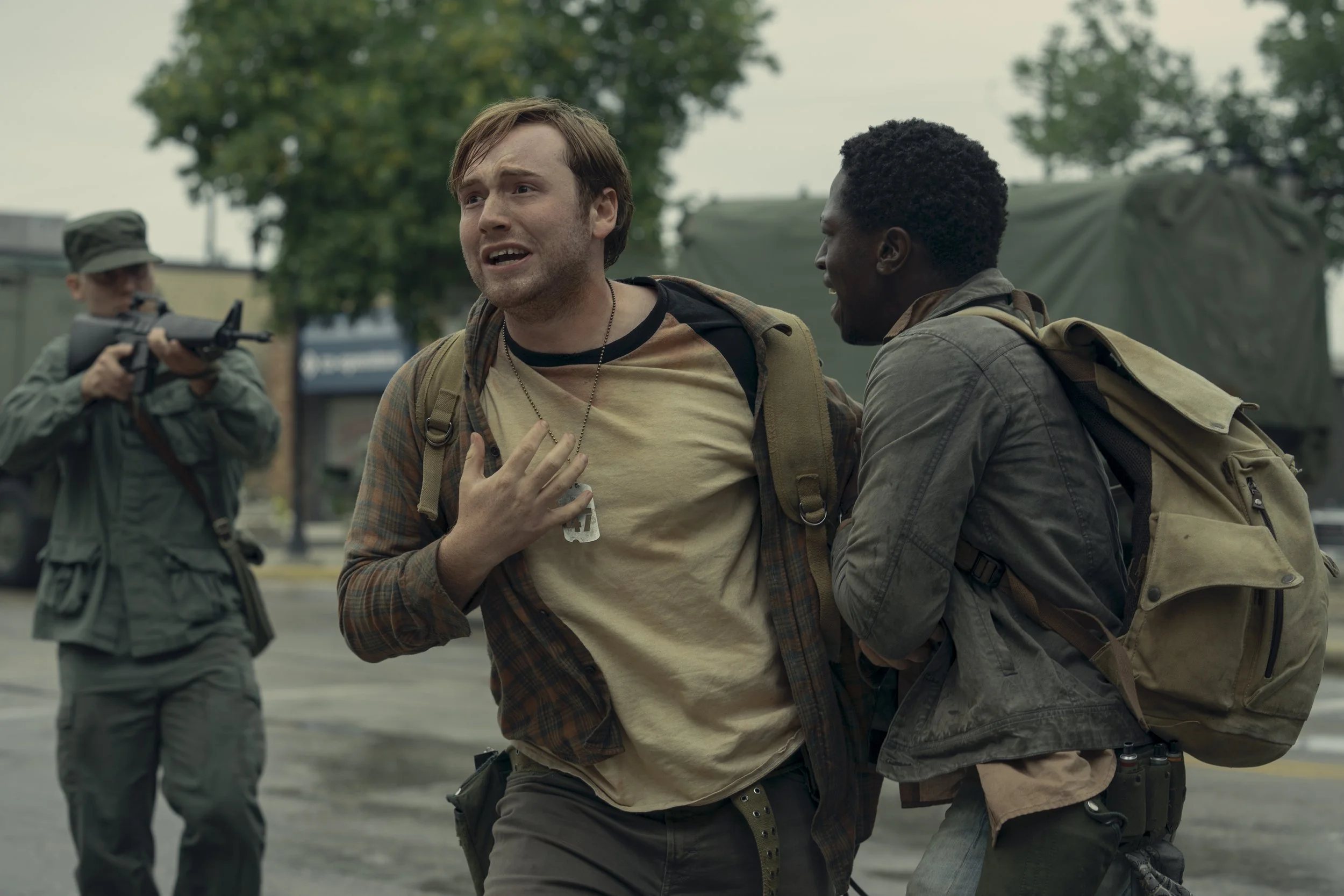“The Long Walk” is One of the Best Stephen King Adaptations
Director Francis Lawrence became a household name when he directed the second installment of the Hunger Games franchise. After the success of Catching Fire, he went on to direct each new film in the series and is currently working on the upcoming prequel, Sunrise on the Reaping. There’s perhaps no other director so well-versed in dystopian narratives than Lawrence, which makes him the perfect person to helm the adaptation of one of Stephen King’s earliest works. The Long Walk, while it may not be one of King’s most famous works, is bleak, brutal, and all-too-relevant for today’s audiences.
The Long Walk takes place in an alternate 20th century. The characters reference a war that caused immense economic hardship, but the film doesn’t spend too much time explaining the circumstances that brought these fifty boys to the starting line. The title refers to a yearly event called The Walk, where one boy from each state is selected to participate in a nonstop walk. They must maintain a pace of three miles per hour, and anytime they drop below this speed, they’re given a warning. A mile of on-speed walking removes the warning, but after three warnings they’re shot by one of the military officials overseeing the event. The film focuses on Ray (Cooper Hoffman) and Peter (David Jonsson), who form a friendship during the walk, but there can only be one winner at the end.
After all the years spent working on a similarly bleak film series centered around children in a totalitarian regime, Lawrence has a keen eye for what audiences need to be shown in order to understand the gravity of the situation. Another version of the film would have leaned into the inherent violence of the walk. The Long Walk is sparing when it comes to the harshness these boys are subjected to. We’re shown enough to see the callousness with which the faceless soldiers carry out orders, but we aren’t shown every death in excruciating detail, so we can’t get used to it. Similarly, one of the boys in the film says he’s afraid he’ll get to a point where he’s used to the sound of gunshots killing the boys around him.
Photo Credit: Murray Close. Courtesy of Lionsgate
The sole winner of The Walk will receive riches beyond their wildest dreams, along with one wish. There’s much debate over how they would spend their one wish, but Ray keeps his answer close to his chest. He’s the first to be openly critical of the event, saying that participating in The Walk is an illusion of choice. Things are so bleak that virtually everyone in America could benefit from winning the money, so yes, it’s a voluntary lottery, but the system allows no other means of escaping poverty. It’s a choiceless choice, one that mirrors the current state of affairs in encouraging young men and women to enlist in the Army. We have a record number of people living below the poverty line or living one unexpected disaster away from falling into economic despair, but the Army offers schooling, work, and stability. The Long Walk was originally published in 1979, but King began writing it in 1966. It’s impossible not to see the connections to the Vietnam War. The lottery is a substitute for the draft and its inherent loss of innocence, but perhaps most damningly, the lack of reason behind it. We are presented with vague rationale for the purpose fifty boys walking hundreds of miles serves for unity of a country, but nothing that makes sense.
While it would be a dark horse nomination, both Hoffman and Jonsson are deserving of award consideration at the end of the year, but all the boys we get to know deliver outstanding performances. They remind you of the kind of guys you knew when you were eighteen, their confidence, arrogance, anger, and kindness on full display as they walk mile after mile. These boys speak to the feelings that are swirling through the young people of the real world today. The anger for what looks like a bleak future and the helplessness of feeling like there’s no way forward. The Long Walk is no walk in the park. It’s a brutal exercise of putting one foot in front of the other in the pursuit of an unknown finish line.
support your local film critic!
~
support your local film critic! ~
Beyond the Cinerama Dome is run by one perpetually tired film critic
and her anxious emotional support chihuahua named Frankie.
Your kind donation means Frankie doesn’t need to get a job…yet.
Follow me on BlueSky, Instagram, Letterboxd, YouTube, & Facebook. Check out Movies with My Dad, a new podcast recorded on the car ride home from the movies.

